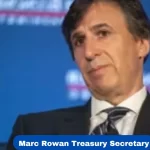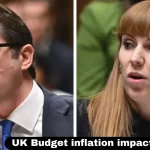The UK economy unexpectedly contracted in September 2024, raising concerns about its slowing pace. According to the Office for National Statistics, GDP fell by 0.1%, following a modest 0.2% growth in August. Economists had predicted a 0.2% rise, making this downturn a surprise.
For the third quarter, the economy grew only 0.1%, below the 0.2% forecast. This was a significant drop compared to the 0.5% expansion in the second quarter, highlighting a loss of momentum as the year progressed.
Sector Performances: Mixed Outcomes
The services sector, which is the backbone of the UK economy, showed minimal growth of 0.1% in the third quarter. In contrast, the construction sector grew by 0.8%, offering some positive news. However, the production sector declined by 0.2% in September, reflecting challenges in manufacturing and industrial activities.
Inflation and Bank of England Policy
Inflation dropped to 1.7% in September, falling below the Bank of England’s 2% target for the first time since April 2021. This decline provided some relief and prompted the Bank of England to lower interest rates by 25 basis points to 4.75% in early November.
Despite the reduction, the Bank remains cautious about inflation risks. Officials have flagged concerns about government fiscal policies and global economic uncertainties, which could impact their long-term inflation forecasts.
Government’s Response to Economic Challenges
Finance Minister Rachel Reeves expressed disappointment with the GDP numbers. She reaffirmed the government’s commitment to economic recovery through investment and reform.
Reeves highlighted plans to create jobs, rebuild the NHS, and improve public finances. She believes these measures will boost GDP by 0.75 percentage points within a year, despite the slow growth reported this quarter.
Economic Risks and Expert Opinions
Economists have raised concerns about the UK’s economic trajectory. Ruth Gregory from Capital Economics noted that GDP growth has been sluggish, with the economy expanding in only two of the past six months. She remains hopeful that reduced inflation and government spending may lead to moderate growth in the near future.
Geopolitical issues, such as the impact of U.S. President-elect Donald Trump’s tariff policies, add another layer of risk. Bank of England Governor Andrew Bailey warned of potential global fragmentation but avoided making detailed predictions.
Suren Thiru, from the Institute of Chartered Accountants, believes another rate cut in December is unlikely. He cited growing global challenges and inflation concerns as key reasons for caution among policymakers.
Currency Market Reactions
The British pound stayed stable against the U.S. dollar following the GDP report. However, the euro strengthened by 0.4% against the pound, reflecting investor responses to the weak economic data.
Outlook for the UK Economy
The UK faces significant challenges as growth slows. While falling inflation and government spending may offer temporary relief, deeper issues like weak consumer confidence and geopolitical uncertainties could hinder progress.
The coming months will be critical. Policymakers must balance fiscal strategies with external risks to ensure stability and pave the way for sustainable growth. The economy’s path forward will depend on resilience and adaptability in an unpredictable global environment.































